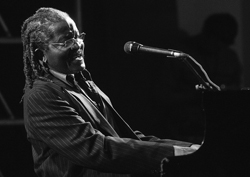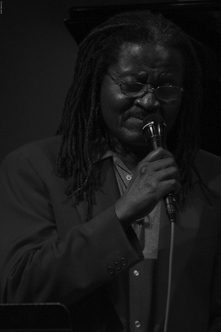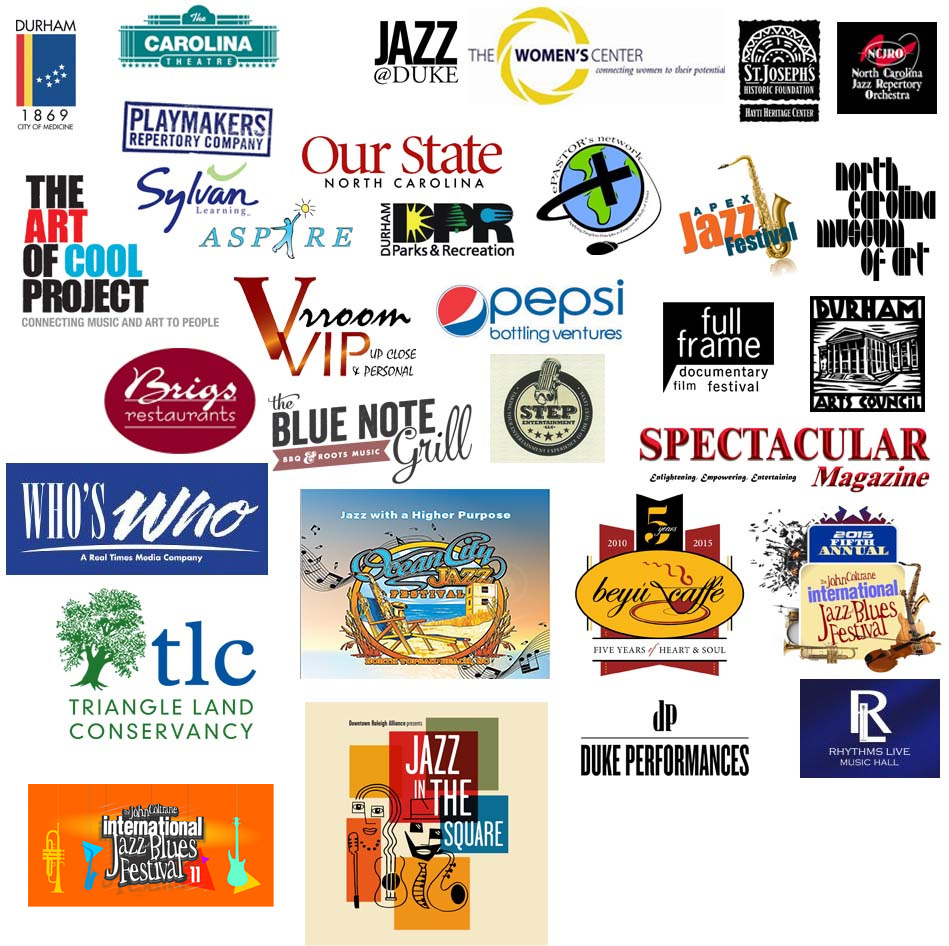Andrew Bey
 Andrew W. Bey was born October 28, 1939 in Newark, New Jersey. He is a jazz singer and pianist. He worked on a television show, Startime, with Connie Francis and sang for Louis Jordan. He also did notable work with Horace Silver and Gary Bartz. Later he had an album named Experience And Judgment, which had Indian influences. After that period he returned to hard bop and also did covers of music by non-jazz musicians like Nick Drake.
Andrew W. Bey was born October 28, 1939 in Newark, New Jersey. He is a jazz singer and pianist. He worked on a television show, Startime, with Connie Francis and sang for Louis Jordan. He also did notable work with Horace Silver and Gary Bartz. Later he had an album named Experience And Judgment, which had Indian influences. After that period he returned to hard bop and also did covers of music by non-jazz musicians like Nick Drake.
One of the great unsung heroes of jazz singing, Andy Bey is a commanding interpreter of lyrics who has a wide vocal range and a big, rich, full voice. Bey was exposed to jazz as a child and started singing in front of local audiences as early as eight. At some gigs, an eight-year-old Bey was accompanied by tenor sax great Hank Mobley. Bey was 13 when, in 1952, he recorded his first solo album, Mama’s Little Boy’s Got the Blues; and he was 17 when he formed Andy & the Bey Sisters with his siblings Salome and Geraldine in 1956. The group did a 16-month tour of Europe and recorded three albums (one for RCA Victor in 1961, two for Prestige in 1964 and 1965) before breaking up in 1967.
In the 1960s and 1970s, Bey’s  vocals were featured by Max Roach, Duke Pearson, and Gary Bartz . The 1970s also found Bey recording Experience and Judgment for Atlantic and beginning a long association with pianist Horace Silver, who featured him prominently on many of the religious-themed albums he put out own his own Silveto label in the 1970s and 1980s. The LPs contained what Silver termed “metaphysical self-help music” and preached a sort of religious self-help philosophy that wasn’t unlike Reverend Ike’s message — unfortunately for Silver and Bey, this approach meant limited distribution and little commercial appeal.
vocals were featured by Max Roach, Duke Pearson, and Gary Bartz . The 1970s also found Bey recording Experience and Judgment for Atlantic and beginning a long association with pianist Horace Silver, who featured him prominently on many of the religious-themed albums he put out own his own Silveto label in the 1970s and 1980s. The LPs contained what Silver termed “metaphysical self-help music” and preached a sort of religious self-help philosophy that wasn’t unlike Reverend Ike’s message — unfortunately for Silver and Bey, this approach meant limited distribution and little commercial appeal.
Bey continued to work with Silver into the 1990s, when he was featured on Silver’s 1993 Columbia date It’s Got to Be Funky (which marked a return to hard bop’s mainstream and did much better commercially than his “self-help music”). Labels Bey recorded for as a leader in the 1980s and 1990s included Jazzette, Zagreb, and Evidence, which, in 1996, released the superb Ballads, Blues and Bey.

